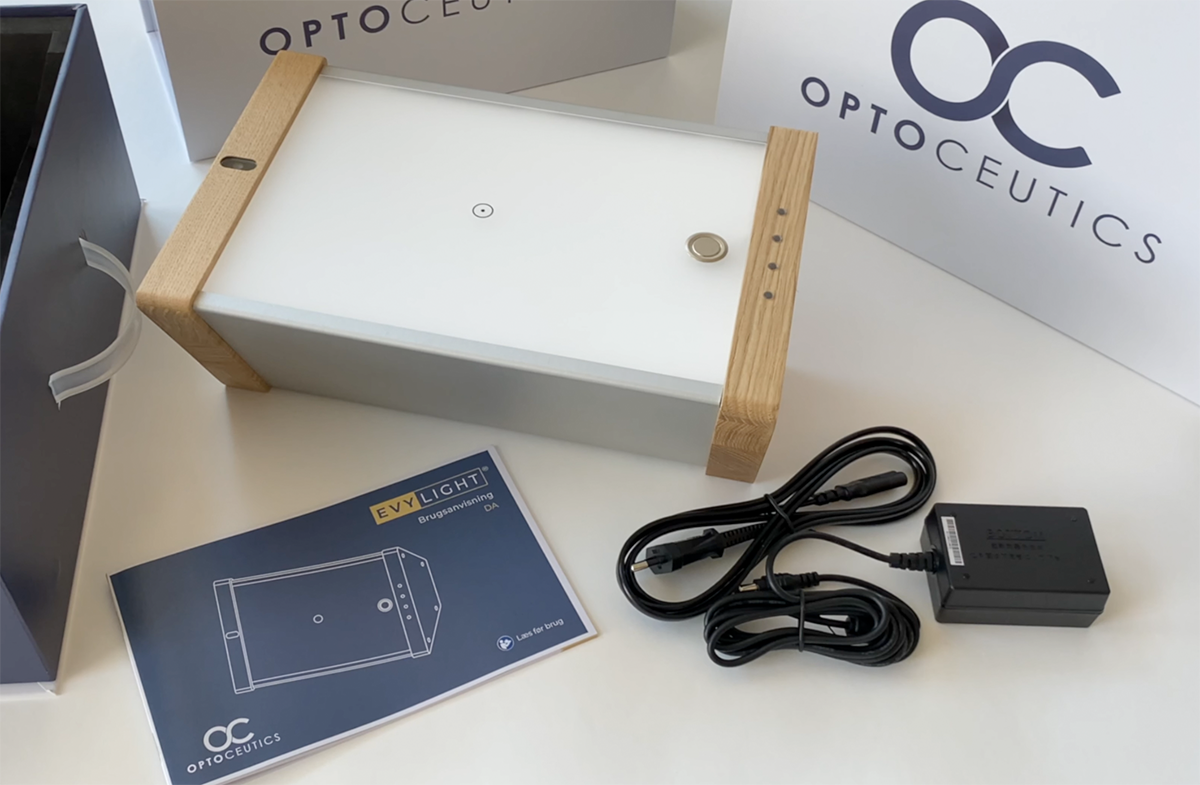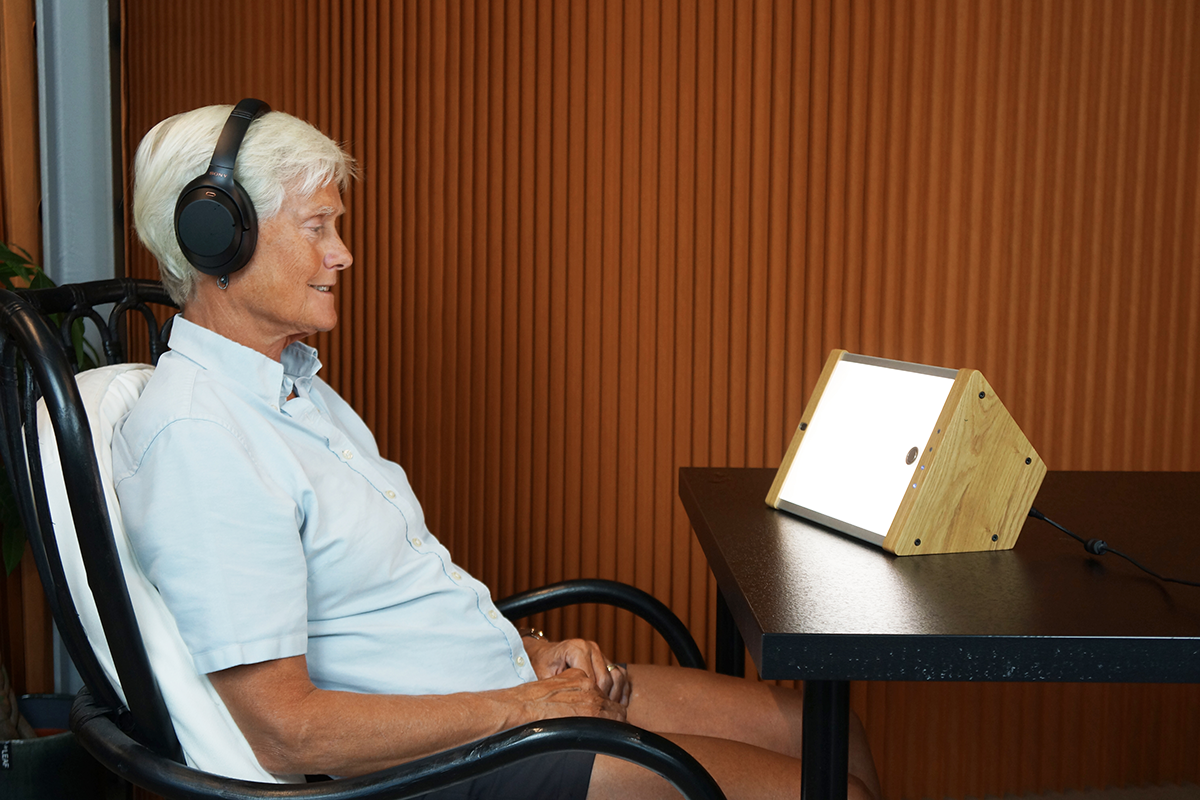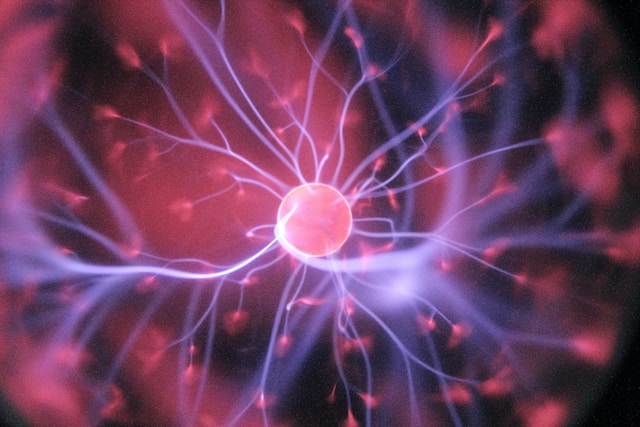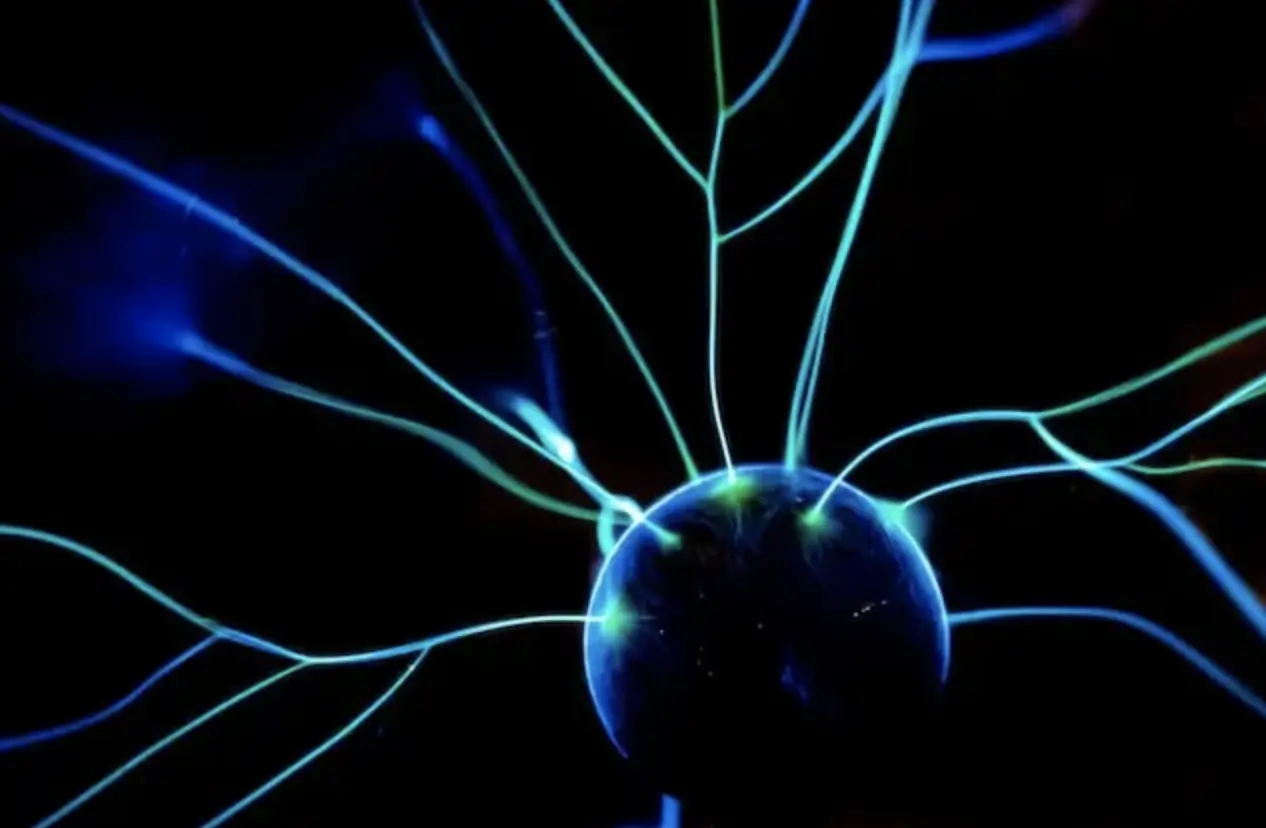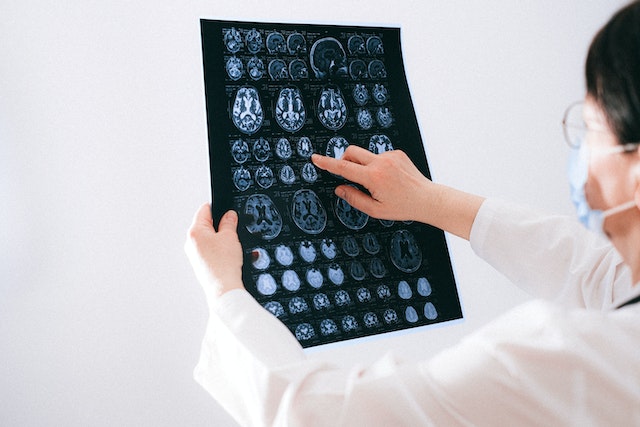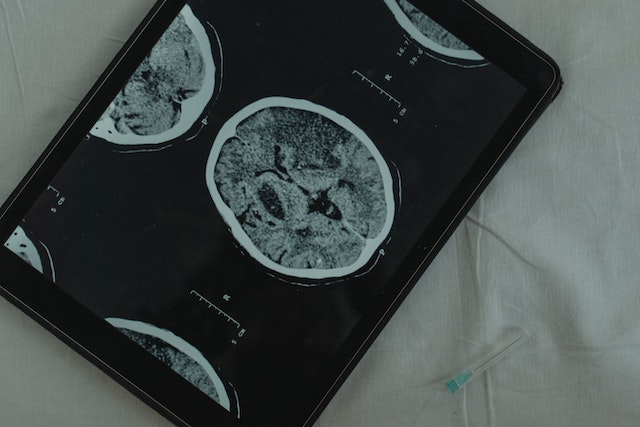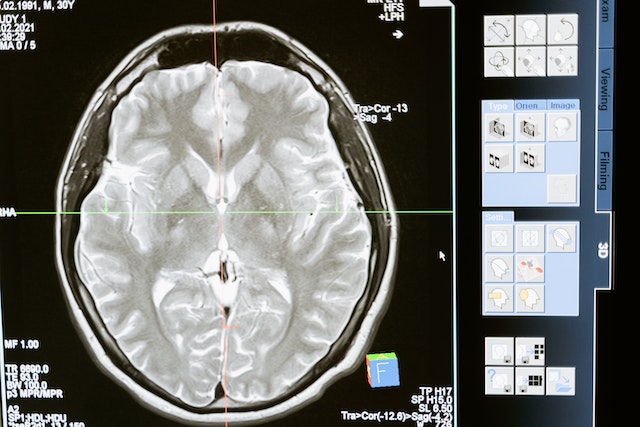Alzheimer’s disease is a debilitating neurodegenerative condition that affects our cognitive abilities like memory retention and concentration. There is no cure for this disease, but researchers are tirelessly looking for viable treatment options for Alzheimer’s. One of the latest innovations in Alzheimer’s treatments comes from an unusual source – light therapy. The first human trials on light therapy treatment for Alzheimer’s disease are already under way, hoping to improve outcomes for people afflicted with this condition.
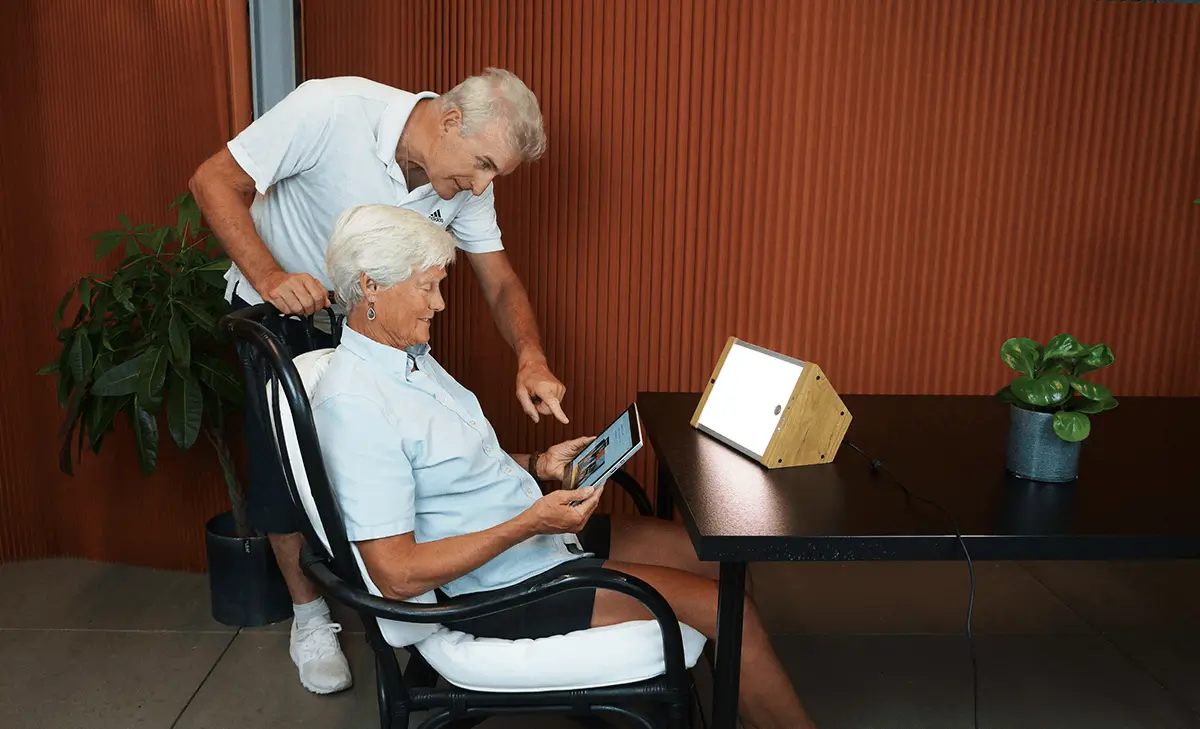
Christopher Ravn
Key Takeaways
1. The first human trials into using light therapy treatment for Alzheimer’s disease yielded promising results.
2. Researchers noted that light therapy treatment could help manage many symptoms of the disease, including sleep pattern issues and memory retention.
3. Although the research is ongoing, light therapy treatment for Alzheimer’s is already being looked at by large institutions such as the National Institute for Health as a viable treatment.
4. People with Alzheimer’s disease can receive light therapy treatment at home by purchasing a specialized light therapy lamp, such as EVY LIGHT.
Table of Contents
1. First Human Trials In Light Therapy Treatments For Alzheimer’s
2. The Results Of The First Human Trials On Light Therapy For Alzheimer’s
3. How Does Light Therapy Affect Brain Function in Alzheimer’s According To The Trials?
4. What Do the First Human Trials Tell Us About Light Therapy For Alzheimer’s?
5. Research On Other Treatments Vs First Human Trial Research On Light Therapy For Alzheimer’s
6. Based On The First Human Trials Findings, What Is The Best Type Of Light Therapy For Alzheimer’s?
7. Based On The First Human Trials Findings, What Is The Best Device To Use With Light Therapy For Alzheimer’s?
8. How Much Does Light Therapy For Alzheimer’s Cost?
9. Did The First Human Trials Show That Light Therapy Can Be Detrimental If You Have Alzheimer’s?
10. Frequently Asked Questions About The First Human Trials On Light Therapy For Alzheimer’s
First Human Trials In Light Therapy Treatments For Alzheimer’s
The first human trials in light therapy treatment for Alzheimer’s were conducted in 2022, have shown significant promise (Tsai et al., 2022). These studies focused on the frequency of light used, specifically 40 Hz, to synchronize with the brain’s gamma waves.
This study was conducted over two distinct phases, with the first phase testing whether light therapy was a safe form of treatment.
The second phase of the study brought together 15 participants who had early-stage Alzheimer’s disease. These participants were then given a light therapy device to use at home for one hour each day.
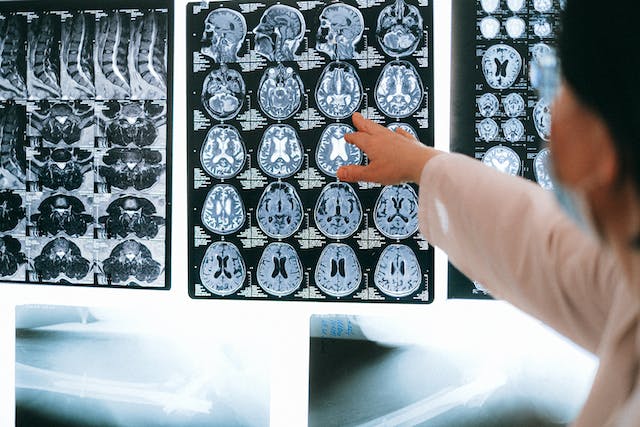
Who Performed The First Human Trials On Alzheimer’s?
The team from MIT responsible for these initial human trials for Alzheimer’s light therapy treatment was led by Li-Huei Tsai, professor at the Picower Institute for Learning and Memory. Her team has been working in the field of optogenetics for seven years, but it was only recently that their research advanced to human trials.
When Were The First Human Trials On Alzheimer’s Performed?
These trials were conducted in 2022, although phase 2 of the study was cut short due to the pandemic. The team has already started their next body of research in this area, with a much larger clinical trial that will recruit hundreds of Alzheimer’s patients. This study is expected to run for one year to provide a more complete picture of light therapy treatments for Alzheimer’s disease.
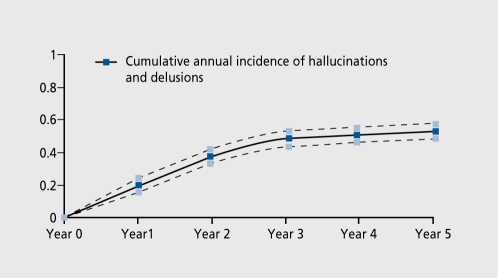
The Results Of The First Human Trials On Light Therapy For Alzheimer’s
The findings from the first human trials on light therapy for Alzheimer’s yielded some incredibly promising results. Although there is still a lot of research left to do on the matter, much of the work from the initial studies will act as a solid foundation to build from. The phase 1 part of the trial aimed to verify the safety of light therapy treatment. The team concluded that this treatment didn’t cause any significant side effects, with participants noting feelings of drowsiness as their most troubling complaint. Phase 1 also demonstrated that participants experienced a positive change in their gamma brain waves.
The second phase of the study also pointed to a lack of any adverse reactions to the light therapy treatment in participants. Beyond this, it appeared to show that those involved in the trial experienced enhanced connectivity in certain brain regions. This, in turn, could potentially help improve cognition and visual processing. What’s more, the researchers found that the light therapy helped participants enjoy a more consistent sleep pattern.
How Does Light Therapy Affect Brain Function in Alzheimer’s According To The Trials?
Light therapy looks to be an incredibly promising treatment option for people with Alzheimer’s disease. It offers a non-invasive and drug-free alternative therapy that looks to offer a number of benefits to Alzheimer’s patients. This includes the ability to positively influence several brain functions which have been disrupted by the disease.
- Mood Stabilization: Mood swings are a common symptom of Alzheimer’s disease, particularly as the disease progresses. Light therapy appears to help with mood stabilization, improving the quality of life of individuals with Alzheimer’s and their carers.
- Neuroprotection: Light therapy also appears to help with neuroprotection, helping Alzheimer’s patients by strengthening neurons and creating new ones.
- Amyloid Plaque Loss: Amyloid plaques in the brain are a sign that Alzheimer’s disease has progressed and many believe they even cause the symptoms associated with the condition. Light therapy looks to reduce this plaque buildup, potentially diminishing the symptoms of Alzheimer’s, too.
- Improved Memory: One of the most common symptoms of Alzheimer’s is memory loss. Light therapy could potentially help with this by reversing some of the damage caused in the brain through neurogenesis.
Effect Of Light Therapy On Disturbed Behaviors
Alzheimer’s disease often comes with a number of behavioral disturbances that impact the quality of life of individuals suffering from this condition. These disturbances range from poor loss of focus to acting aggressively. It seems as though light therapy can have a profound effect on these behavioral patterns, changing them for the better.
By finding ways to lessen these behavioral disturbances, the outcomes for people with Alzheimer’s disease improve. For example, as light therapy encourages attention spans, patients are less likely to experience mood imbalances or agitation. It has also been shown to help with memory retention, helping alleviate symptoms such as anxiety or depression.
The Circadian System In Alzheimer’s Disease
The circadian system is responsible for letting our bodies know when we are tired and when we are well-rested. People with Alzheimer’s disease have a dysfunctional circadian system that causes issues with sleep, such as waking up in the middle of the night. Light therapy treatment appears to help with this by correcting the problems in the circadian system.
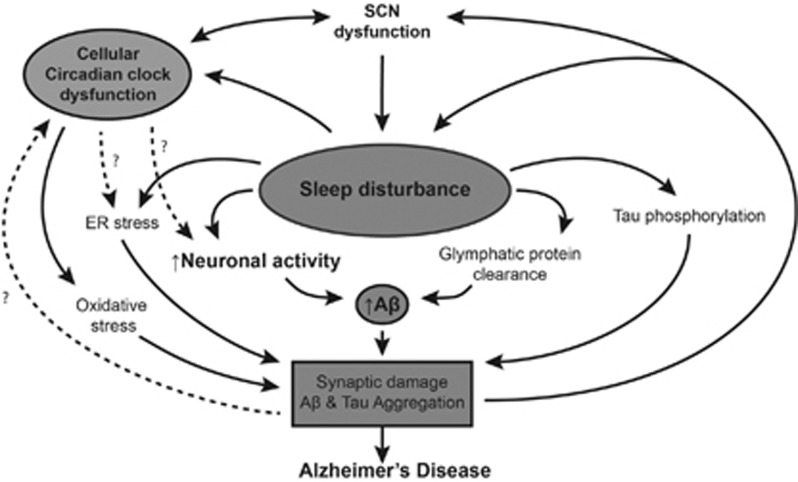
What Do the First Human Trials Tell Us About Light Therapy For Alzheimer’s?
Although the research is still ongoing, the initial findings from the first human trials surrounding light therapy for Alzheimer’s hold a great deal of promise. By using light pulsing at 40Hz – or 40 pulses of light per second – the team noted several areas where participants experienced benefits. These areas included:
- A more stable mood.
- Enhanced cognitive abilities such as memory retention.
- A more restful sleep and improved sleep patterns.
- Generally slowing of the neurodegenerative symptoms associated with Alzheimer’s disease.
What’s more, the team spent a good portion of the study trying to determine how safe the treatment was. They concluded that light therapy is safe to use, doesn’t have any significant side effects and can work alongside other treatments without issue.
From These Findings, Do We Know If Light Therapy Can Help With Alzheimer’s?
As the body of research surrounding light therapy treatments for Alzheimer’s is still quite new, we don’t know how far the benefits can go. At the moment, it appears as though there is a lot of promise in light therapy, as it has been noted to help with a number of symptoms associated with the disease. The body of research around this is always growing, with studies such as those undertaken by OptoCeutics researchers shedding more light on this potentially life-changing therapy.
So although we aren’t quite aware of the scale and scope of these findings, it does seem as though light therapy can help with Alzheimer’s. As we learn more about this treatment – through long-term studies such as this one from the National Institute of Health – we’ll have a much more complete picture on how much help this treatment can offer Alzheimer’s patients.

Enhance your brain performance through the power of light.
Comfortable and easy to use 40Hz light therapy to support and improve your brain function.
View Our LightResearch On Other Treatments Vs First Human Trial Research On Light Therapy For Alzheimer’s
Alzheimer’s disease has proved to be a challenging condition to treat, and since there isn’t any known cure researchers have looked into many different treatment options. Of these, medications appear to be the most prevalent route taken. The other treatments most commonly used for Alzheimer’s include:
- Memantine: Memantine is used to lower glutamate levels, which is believed to slow the onset of Alzheimer’s.
- Leqembi: This drug reduces to number of amyloid proteins in the brain, which are believed to play a role in the symptoms of Alzheimer’s.
- Immunotherapy: Another route of treatment is immunotherapy, which uses vaccines to lower amyloid plaque levels in the brain and slow the progression of Alzheimer’s disease.
- Cholinesterase Inhibitors: These drugs, such as donepezil, are used to inhibit cholinesterase and have been shown to help boost cognition in Alzheimer’s patients.
Light therapy has the potential to be incredibly useful for a few different reasons. It could possibly be used in place of the treatments above, or it can work as a complementary treatment. As it doesn’t have any significant side effects or negative drug interactions, researchers believe light therapy could offer another avenue to treat the symptoms of this disease.
Based On The First Human Trials Findings, What Is The Best Type Of Light Therapy For Alzheimer’s?
The first human trials using light therapy treatments for Alzheimer’s disease focused on the frequency of light being used – 40 Hz – instead of the type of light used. This has been shown to be the most effective form of light therapy treatment for Alzheimer’s so far. It targets the gamma brain waves in patients, which are responsible for high-cognitive functions such as problem-solving. So using a light therapy treatment that harnesses the 40Hz frequency is may be a viable option when treating symptoms associated with Alzheimer’s disease.

Based On The First Human Trials Findings, What Is The Best Device To Use With Light Therapy For Alzheimer’s?
The findings from the first human trials using light therapy for Alzheimer’s disease looked at using light devices that flickered at 40 Hz. This frequency was used to synchronize with the gamma waves in the brain, which are dysfunctional in people with Alzheimer’s disease.
When it comes to selecting the right device for Alzheimer’s light therapy treatment, make sure that you look for a light that can offer a 40 Hz frequency. You’ll also want to weigh up whether you want to use a basic stroboscopic light or not, since many people report problems with tolerability and get headaches or nausea. Instead, using a device such as OptoCeutic’s EVY LIGHT may help will you avoid these possible side effects. This device uses patented ISF technology instead of stroboscopy.
We Believe Prioritizing Brain Health Enhances Your Quality Of Life
Get to know our team, our mission and how our EVY LIGHT® can provide you and your loved ones with a fuller life, letting you breathe a little easier.
How Much Does Light Therapy For Alzheimer’s Cost?
The cost of light therapy treatment for Alzheimer’s will be different depending on where you receive the session. If you choose to go the clinical route, you’ll likely have to pay considerably more to use the light therapy devices in hospitals. Your insurance provider may cover this treatment, but it certainly isn’t guaranteed.
Alternatively, using an at-home light therapy lamp such as EVY LIGHT offers you a cost-effective solution. These are affordable and you can use it in the comfort of your own home. This means you don’t have to schedule appointments or travel for treatment.
What Is The Best Device To Use With Light Therapy For Alzheimer’s?
There are a few devices to consider if you’re thinking about trying light therapy treatment for Alzheimer’s disease. Regardless of which device you choose, make sure it can work to 40 Hz so that you can enjoy the full benefits that the human trials have found. The EVY LIGHT is a great example, offering utility for use in the home and all of the functionality needed to perform light therapy treatment sessions.
What’s more, the EVY LIGHT features ISF technology which uses alternating white colors to provide treatment. This is preferable to stroboscopic devices, which use a strobe effect that can cause side effects like nausea, headaches or seizures.
Did The First Human Trials Show That Light Therapy Can Be Detrimental If You Have Alzheimer’s?
Based on the first human trials for Alzheimer’s light therapy, all of the evidence seems to point to the treatment being incredibly safe. Participants experienced no significant side effects from the treatment and there were no negative interactions with medication or other forms of treatment.
With that said, there are potential issues that could arise if someone undergoes this treatment and already has a certain condition. So if you have any of the following issues, please consult a doctor before trying out light therapy:
- Eye conditions such as retinal disease.
- Skin sensitivity disorders such as lupus or dermatitis.
- Behavioral conditions such as bipolar disorder.
- Sensitivity to light.
Learn What Others Have Experienced with EVY Light
See how others have achieved a sharper mind by activating their gamma brainwaves in combination with maintaining a healthy lifestyle.
Frequently Asked Questions About The First Human Trials On Light Therapy For Alzheimer’s
What are the observed benefits of light therapy in Alzheimer’s patients in these trials?
In the initial human trials, light therapy has shown promise in treating symptoms of Alzheimer’s disease. Researchers have been exploring its effectiveness in improving sleep, mood, and cognitive function in patients with Alzheimer’s. Some studies have indicated that light therapy can have positive effects on restlessness, disturbed sleep, and other behavioral symptoms commonly associated with dementia.
How does light therapy work in the context of Alzheimer’s treatment, and what is the mechanism behind it?
Light therapy, in the context of Alzheimer’s treatment, involves exposure to light of specific wavelengths and intensities, which is believed to stimulate gamma brain-wave activity through brain-wave synchronization. This synchronization is thought to influence the brain’s biochemistry, potentially improving symptoms like sleep disturbances, mood swings, and cognitive decline often seen in Alzheimer’s patients
What Are The Results Of The First Human Trials On Light Therapy For Alzheimer’s?
The findings from the first human trials using light therapy for Alzheimer’s disease appear to show that it is a viable treatment option. Researchers noted that light therapy sessions could reset dysfunctional circadian systems in participants. The participants were also noted to have improved cognition, memory retention and lower amyloid plaque numbers in their brains.
Who Performed The First Human Trials On Alzheimer’s?
The first human trials on light therapy treatment for Alzheimer’s disease were conducted by Li-Huei Tsai, the Picower Professor in the the Picower Institute for Learning and Memory (Tsai et al., 2022). Her team initially started work on this project 7 years ago, but it wasn’t until their human trials in 2022 that their discovery became big news.




